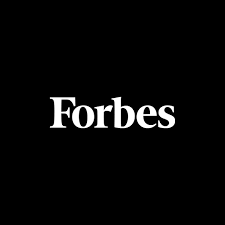
Informed i’s Weekly Business Insights
Extractive summaries and key takeaways from the articles carefully curated from TOP TEN BUSINESS MAGAZINES to promote informed business decision-making | Since 2017 | 377, Nov 29-Dec 5, 2024 | Archive

Australian Fast-Food Billionaire Jack Cowin Dishes Up His Strategy For Success
By Jennifer Wells | Forbes Magazine | December 3, 2024
Extractive Summary of the Article | Listen
3 key takeaways from the article
- Despite the recent upheaval with Covid, the fundamentals haven’t changed in the fast-food industry in the past 50 years, says Jack Cowin, the billionaire founder and executive chairman of Competitive Foods Australia, the privately held group behind some of the country’s biggest fast-food chains.
- “Food has got to be hot, drinks have got to be cold and the service has got to be with a smile,” adds Cowin, one of Australia’s richest men with an estimated net worth of $3.2 billion.
- He’s been outspoken about rewarding employees on a profit-share basis to get better results. “Primarily it’s a people business,” he says. His other strategic advice are: “Largely our strategy has been, how do you build, how do you reinvest into what you got,” he emphasizes, which has seen Competitive Foods plowing A$75 million back into Hungry Jack’s each year. “Why we have been successful is because we have had 50 odd years of reinvesting back into the business.” “The primary focus in business is to not get yourself into a position where, if something goes wrong, you can get taken out of the game,” Cowin says. “Rule one in business is don’t go broke.”
(Copyright lies with the publisher)
Topics: Strategy, Business Model, Australian Fast-Food, Billionaire Jack Cowin
click for the extractive summary of the articleExtractive Summary of the Article | Read | Listen
Despite the recent upheaval with Covid, the fundamentals haven’t changed in the fast-food industry in the past 50 years, says Jack Cowin, the billionaire founder and executive chairman of Competitive Foods Australia, the privately held group behind some of the country’s biggest fast-food chains.
“Food has got to be hot, drinks have got to be cold and the service has got to be with a smile,” adds Cowin, one of Australia’s richest men with an estimated net worth of $3.2 billion, speaking on the sidelines of the Forbes Global CEO Conference in Bangkok in November.
Hungry Jack’s, a Burger King franchise in Australia—the name Burger King had already been trademarked by a local restaurant—is one of the largest fast-food chains in Australia, by both store count and revenue, which Cowin grew from a single store in Perth to over 440 stores today.
The chain has defied a trend that saw people, hit by higher costs of living, spending less on eating out. Australia’s fast-food and takeaway industry has grown at an annualized 1.3% over the past five years to hit an estimated $25.3 billion in 2024, per global market research firm IbisWorld. In the year ended June 30, Competitive Foods saw an 18% jump in revenue to A$2.4 billion from the previous year as net profit edged up to A$74.1 million, according to a filing with the market regulator.
Still, how the business is managed has changed, Cowin says. A shift to drive-through and takeaway alongside rising building costs and red tape has seen store size shrink by about 20% on average. “It’s a balancing act,” says Cowin, noting that costs have to be passed on to maintain profitability, so the real challenge is how to get sales up.
He’s been outspoken about rewarding employees on a profit-share basis to get better results. “Primarily it’s a people business,” he says. The principle is to take care of the people who have the most contact with the customer, he commented later at the conference, “because they have the greatest likelihood of having the correct impact on the business.” Hungry Jack’s store managers can now make as much as A$200,000-A$300,000 a year, triple the average salary from a few years ago.
“Largely our strategy has been, how do you build, how do you reinvest into what you got,” he emphasizes, which has seen Competitive Foods plowing A$75 million back into Hungry Jack’s each year. “Why we have been successful is because we have had 50 odd years of reinvesting back into the business.”
Today, the privately held group has invested over A$500 million ($325.4 million) in an overseas portfolio that includes Canadian restaurant group SIR Corp, Kansas City transport provider Railcrew Xpress, and Houston-based construction-safety and maintenance firm Apache Industrial, which has some 40 facilities across the U.S. His investment strategy: “How do I make you bigger and stronger and more dominant than what you are as an independent company?” says Cowin, which is reflective of the group’s wider approach.
The 82-year-old has no plans to list either, eschewing dividends in favor of retaining cash on hand to expand. “The primary focus in business is to not get yourself into a position where, if something goes wrong, you can get taken out of the game,” Cowin says. “Rule one in business is don’t go broke.”
show less